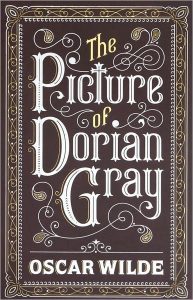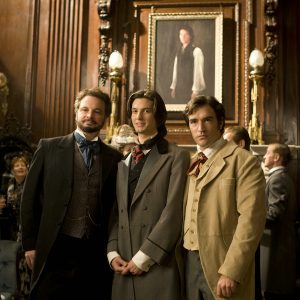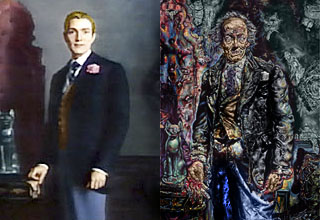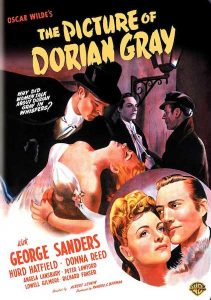by Naomi L. | September 29, 2017 | J.C. Wolfe's Writing, Poetry |
She’s always been there from the start
And loved me every day.
Whenever I was feeling lost,
She helped me find my way.
She gave me almost every book
That I read as a kid,
And nothing made me dream as big
As reading always did.
I started writing short stories
Around the age of nine,
Thanks to the books she shared with me
That sparked this love of mine.
I wouldn’t be a writer now
Had she not held my hand
And guided me from childhood on
Through books’ enchanted land.
And every single piece I write,
She always seems to love.
Her feedback never finds a flaw,
All “five stars” and above.
My whole life, I have felt so blessed
She played the biggest part
In pushing me to reach my dream
Of making works of art.
No matter where I go from here,
I know she’ll always be
The person I can count on most
To always cheer for me.
So have a Happy Birthday, Mom,
In every way you can!
I love you to the moon and back,
My all-time biggest fan!
Happy Birthday to my amazing mother! Thank you for always supporting my dream to be a writer! I love you!
by Naomi L. | September 27, 2017 | Blog, Creative Writing |
Writers need a lot of support to make it through their careers. For many of us just starting out, the bulk of that support comes from family, and of all the relatives who motivate you, few do it better than your mom. Given that she’ll always love you no matter what, you know she’s been there for you since the beginning of your life, and she’ll always be there for you to the end!
This week marks a special occasion for that amazing woman in my life, so today I want to honor her with a creative writing post highlighting all the awesome ways she’s supported my dream to be a writer. For your consideration, here are ten signs your mom is the biggest supporter of your writing career. Thanks for all your support, Mom!
 1) She gave you the book that made you want to become a writer in the first place – In my case, that was Charlie and the Chocolate Factory, a book my mom had read as a child and recommended to me when I was nine years old. It changed my life!
1) She gave you the book that made you want to become a writer in the first place – In my case, that was Charlie and the Chocolate Factory, a book my mom had read as a child and recommended to me when I was nine years old. It changed my life!
2) She’s bought you dozens of books throughout your life – From a Roald Dahl collection to the Harry Potter series to The Mists of Avalon, much of my writing has been inspired by books my mom gave me when I was growing up. If your mom gave you plenty of books when you were a kid, you’ll likely find traces of those in your writing too!
3) She didn’t laugh when you told her you wanted to grow up to be an author – If anything, she encouraged your dream and promised to read every single one of your books (which of course you promised to give her free copies of). Bonus points if she bought you the books and/or courses on writing that helped you get there.
4) She brags to everyone she knows that her daughter/son is a writer – Maybe this embarrasses you a little, since most writers prefer to keep to themselves, but hey, free marketing is always a plus!
5) She’s always the first to read your stories – And she loves every single one. Seriously, you could probably write the goriest thriller ever and your mom would still tell you she enjoyed it (though it might be safe to assume she at least skipped over some parts).
6) She’s always the first to review your books – And it’s always five stars across the board. You couldn’t ask for a more devoted fan!
7) She thinks everything you write is amazing – Your mom can never find a single flaw even in the first drafts of your work. This makes her a terrible beta reader but an excellent motivator!
8) She insists that you’re a better writer than most famous authors – And even though you know it’s not true, you appreciate that she’ll always be your biggest fan.
9) She encourages you to keep writing even when you want to give up – She didn’t invest all that time and energy supporting you just to watch you quit on your dreams. Now get back to writing that future bestseller!
10) No matter how successful you really are, you’ll always be a bestselling author in her eyes! – And could you really ask for greater support than that?
Is your mother your biggest fan? How many of these signs fit her? What other signs would you add to this list?
Today’s post is dedicated to my mother, whose love and support have always kept me going on my writing journey. Happy Birthday, Mom! I love you!
by Naomi L. | September 25, 2017 | Blog, Word of the Week |
Word: multifarious
Pronunciation: məl-tə-FE-ree-əs
Part of Speech: adjective
Definition: many and of various types
Source: Oxford Dictionaries
Continuing from last week’s vocabulary entry, today’s Word of the Week is another word brought to my attention by Judith from I Choose How I Will Spend the Rest of My Life. Honestly, I found this one just as interesting as the first, if not more, which is hardly surprising given how many different topics I’ve covered on my blog and how many colorful descriptions I’ve used in my fiction. By all accounts, my interests are certainly “multifarious”!
“Multifarious” describes any group of things that are numerous and consist of various types. Similarly, “multifarious” can also describe a single thing with several varied aspects or parts. The word arose in the late 16th century and comes from the Latin adjective multifarius, meaning “manyfold”.
When including the word “multifarious” in your writing, note that its primary definition is mostly synonymous with “various” (as in “various things”) while its secondary meaning is more synonymous with “diversified” (as in “a diversified group”). In Law, it refers to “a lawsuit in which either party or various causes of action are improperly joined together in the same suit” (more commonly known as a “misjoinder”). To extend the word’s function, you can also use its derivative forms: the adverb “multifariously” and the noun “multifariousness”. If you tend to describe things that come in a wide variety, “multifarious” may be a good word for your stories!
What are your thoughts on this word? Any suggestions for future “Word of the Week” featured words?
by Naomi L. | September 22, 2017 | J.C. Wolfe's Writing, Poetry |
They call it a gift, yet to me it’s a mystery. They envy me for it, they want it for themselves. Yet as I wait behind the curtain, I wonder why. Is it still a gift if you don’t want it? I take a deep breath, exhale slowly. The fear overtakes me, I begin to tremble. But as the curtain rises, anxiety fades into excitement. I understand now. I stand alone on the stage, heart racing, dazed in the light. Silence fills the hall. Lips part, one voice echoes out, a small bird soaring through the air.
Strange beautiful gift
Music touches every heart
Poetry in song
My response to Colleen Chesebro‘s Weekly Poetry Challenge #51: Gift & Song. I know this is the third week in a row that I’ve participated, but I couldn’t resist trying my hand at a haibun with this prompt! I hope you enjoy the poem! Thanks for the prompt, Colleen!
by Naomi L. | September 20, 2017 | Blog, Creative Writing, Off The Bookshelf |
Last year, I reached my first-ever Goodreads Reading Challenge goal of ten books, most of which were historical fiction. I’ve already covered Pride and Prejudice and Sense and Sensibility by Jane Austen in my Off the Bookshelf segment, so today I’m switching over to another author whose novel I really enjoyed: The Picture of Dorian Gray, by Oscar Wilde!

The Picture of Dorian Gray, by Oscar Wilde
Summary
The Picture of Dorian Gray is the only novel written by Irish poet and playwright Oscar Wilde. First published in Lippincott’s Monthly Magazine in July 1890, the novel exists in three versions: the censored 13-chapter edition published in the magazine in 1890, the revised 20-chapter book edition published in 1891, and the uncensored 13-chapter edition submitted to the magazine with all of Wilde’s original material intact. The story follows the moral corruption and downfall of Dorian Gray, a handsome yet narcissistic young man whose vanity leads him to wish that a painting of himself will age in his stead. After his wish comes true, Dorian succumbs to a hedonistic lifestyle of vice and sin from which his insatiable desire for pleasure leaves him little chance to escape.
Review
If it were only the other way! If it were I who was to be always young, and the picture that was to grow old! For that—for that—I would give everything! Yes, there is nothing in the whole world I would not give! I would give my soul for that! – Dorian Gray
A brief disclaimer: Because Wilde’s novel exists in three different forms, each one differs slightly from the others, in some cases affecting the plot. The version I read is the 1891 20-chapter book, so this is the edition that will be referenced throughout this review.
The Picture of Dorian Gray has often been compared to the Faust story, in which a dissatisfied scholar sells his soul to the Devil for unlimited knowledge and pleasure. Similarly, in a moment of weakness and newfound vanity, Dorian offers up his soul for the chance to remain young and handsome forever. In response to this wish, the painting becomes a mirror of Dorian’s soul and begins reflecting the effects of his actions that his body will now be spared. This inciting incident plays into the themes of valuing youth and beauty above all else and the consequences of choosing pleasure over virtue.
One of the most prominent themes in the book is the conflict between morality and pleasure. Although Dorian initially struggles with his new philosophy, his selfish desires ultimately overpower his guilt: after his romance with the young actress Sibyl Vane ends tragically, the subtle change in his portrait’s face proves his actions will have no visible consequence, as the painting will bear all the marks of his sins for him. After accepting Sibyl’s death as an artistic personification of tragedy, Dorian is free to pursue pleasure without risk and spends the next several years of his life indulging in various forms of gratification. Only in the final chapters of the story does he come to question if perpetual youth was worth the price of his soul.
Indeed, the fact that his artistic lifestyle costs him his soul is what makes Dorian Gray such an enigmatic character. Having given up his emotional depth, the protagonist’s true personality remains a mystery to the reader throughout the story. One detail of the novel that makes this evident is the heavy color motif. So many descriptions in the novel involve color in some way, and while at first I dismissed these vivid descriptions as the flowery writing of a poet, I later recognized their allusion to the main character’s internal conflict. The paradox of The Picture of Dorian Gray is that by giving up his soul for the pursuit of pleasure and the perpetuation of beauty, Dorian is no longer able to appreciate either—that is, in a world full of color and beauty, Dorian’s soulless existence is perpetually gray. Thus, Wilde’s novel—at least the revised version—supports the idea that art alone cannot bring happiness; one must have emotional depth in order to appreciate it.

From left to right: Lord Henry Wotton, Dorian Gray, Basil Hallward (Dorian Gray, 2009)
Aside from Dorian, the story features two other important characters: Basil Hallward, the painter of the infamous picture, and Lord Henry Wotton, a witty aristocrat who advocates “New Hedonism”. Both are equally fascinated by Dorian’s beauty but stand at opposite ends of his moral spectrum: Basil represents conformity to moral standards while Lord Henry represents the temptation of sin. In this way, these two gentlemen play the roles of Dorian’s “shoulder angel and devil”, respectively, and personify the novel’s overarching conflict between virtue and hedonism: Basil sees only beauty in Dorian and encourages him to remain virtuous, while Lord Henry lauds his youth and persuades him to live for pleasure above all else. And although Dorian never escapes from the guilt the painter evokes in him, the fact that the story plays out far worse for Basil than for Lord Henry further supports the novel’s theme of beauty’s superiority over virtue.
Interestingly, The Picture of Dorian Gray presents an unusual example of an unscrupulous protagonist who repeatedly dodges moral justice. While Dorian influences several people to unfortunate ends throughout his life, he himself doesn’t get what he deserves for almost the entirety of the novel. While this may be an allusion to Wilde’s aesthetic beliefs, it’s more frequently interpreted as a comment on society’s superficiality and hypocrisy; although several rumors emerge about Dorian’s immoral exploits over the years, his peers nonetheless continue to accept him because he’s beautiful and, by all appearances, innocent. Yet as with any Faustian story, sin is ultimately punished in the end, thus completing the theme of eternal pleasure coming at an exceedingly high cost.
The Picture of Dorian Gray is an intriguing novel, a mix of Gothic horror with social and artistic commentary that never seems to settle on a single form. Even the moral of the story is not so black and white as its similarity to the Faust fable would suggest, as the main character doesn’t suffer the consequences of his actions until the very end, and even then justice is brought about by his own hands. Yet by all accounts, with its enigmatic themes, poetic motifs, and structure of an unusual moral fable, Wilde has created nothing less than an outstanding and fascinating work of art.
Inspiration
There is no such thing as a moral or an immoral book. Books are well written, or badly written. That is all. – Oscar Wilde
In a strange meta twist, the most fascinating aspect of The Picture of Dorian Gray may actually be the author’s preface in the book edition. When Oscar Wilde first submitted his manuscript for publication, the editor of Lippincott’s Monthly Magazine censored the story, removing roughly 500 words without the author’s knowledge. Nevertheless, the novel was widely decried as a violation of public morality. A year later, upon publishing the revised book version, Wilde issued a preface to address these criticisms and defend his work, claiming in this artistic manifesto that the only point of art is to be beautiful, not to serve a moral purpose.

Dorian’s painting, before and after
(Image source: TV Tropes)
Yet in The Picture of Dorian Gray, the eponymous painting itself serves a moral purpose by shedding light on the high price of vanity. Despite the author’s advocacy of aestheticism, his novel suggests that art always contains some degree of meaning: though Dorian constantly tries to immerse himself in a purely artistic lifestyle, he can never escape the haunting lesson in the portrait that bares his corrupted soul. Thus, while he may not have written a truly aesthetic piece, Wilde has nonetheless created a stunning work of art that inspires a poetic theme: art and morality are perpetually intertwined.
As far as artistic inspiration, this novel certainly has its fair share of philosophy. One of the most intriguing aspects of the story is Lord Henry’s powerful influence over the naïve young Dorian. Although Lord Henry’s beliefs contrast heavily with the standards of his time, he speaks with such wit and persuasive language that one can’t help but be drawn to his ideas, however misguided they are. Indeed, the only character immune to these ideas is Basil, whose conventional mindset keeps him morally grounded but makes him utterly boring in the eyes of his impressionable muse. Reading Lord Henry’s speeches, I could easily understand how any weak-minded individual would embrace his poisonous philosophy, which thankfully is revealed to be shallow and impractical by the second half of the story. If anything, the novel is a cautionary tale about the consequences of trying to live such a hedonistic life: the pursuit of pleasure may satisfy the senses with each experience, but it still isn’t worth giving up one’s soul.
Overall, I found The Picture of Dorian Gray to be an enjoyable and intriguing read. Its themes of morality, superficiality, and artistic living make it a notable addition to literature’s vast collection of moral fables. Yet the fact that Wilde was such a strong proponent of aestheticism raises the ultimate question: if his philosophy was to create “art for art’s sake”, should we really put so much weight on the moral themes of his only novel, or take a step back to simply glimpse these undertones while admiring the beauty of his work?

 1) She gave you the book that made you want to become a writer in the first place – In my case, that was
1) She gave you the book that made you want to become a writer in the first place – In my case, that was 




Recent Comments